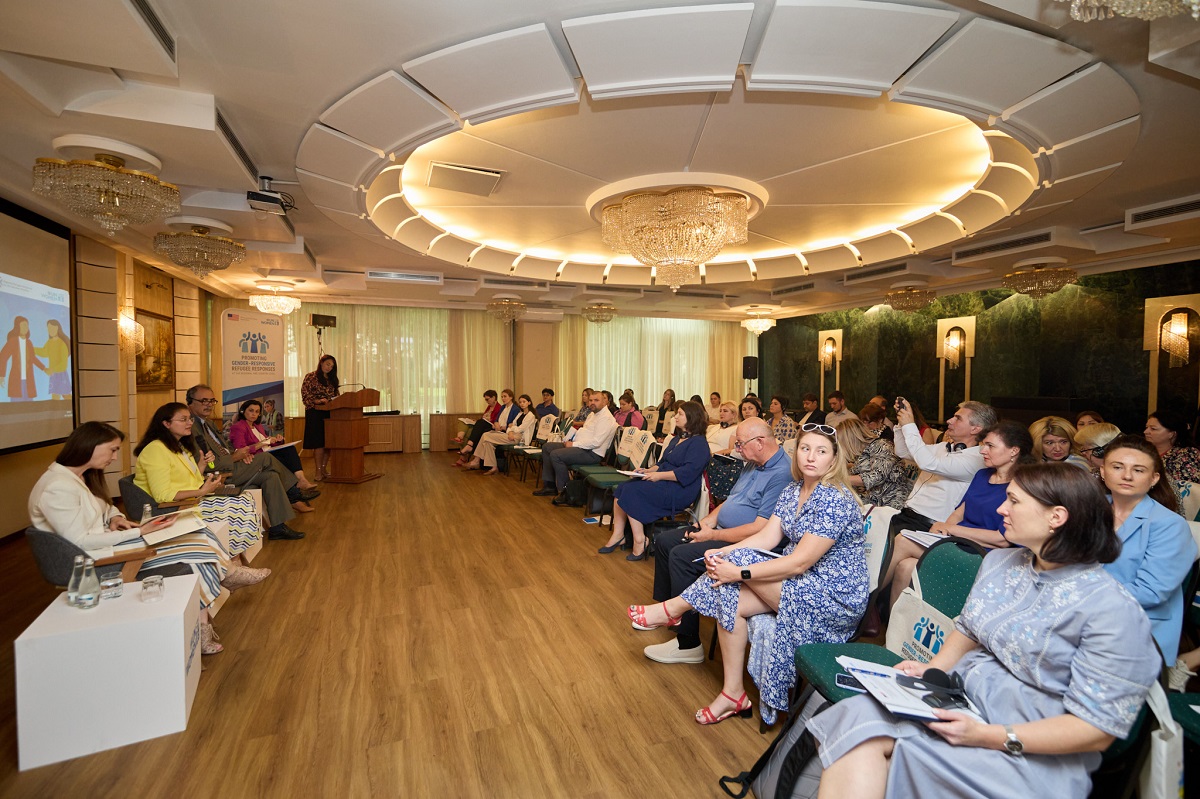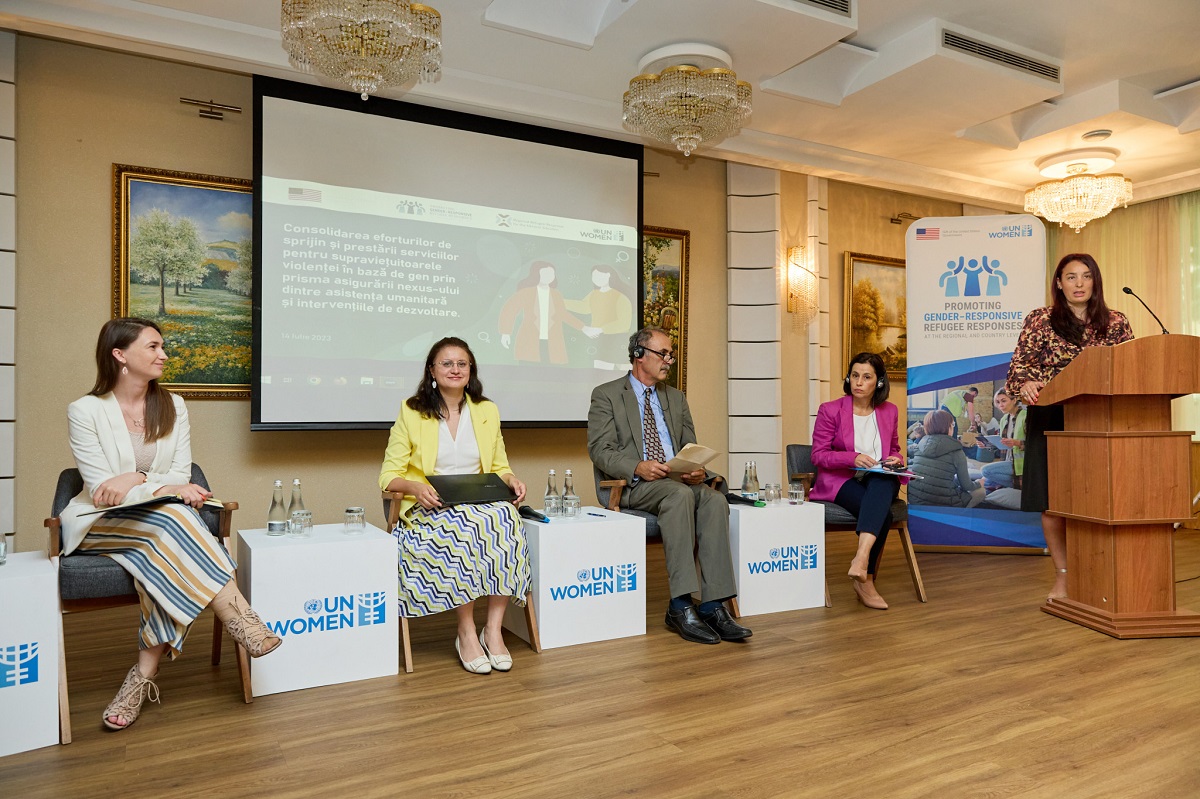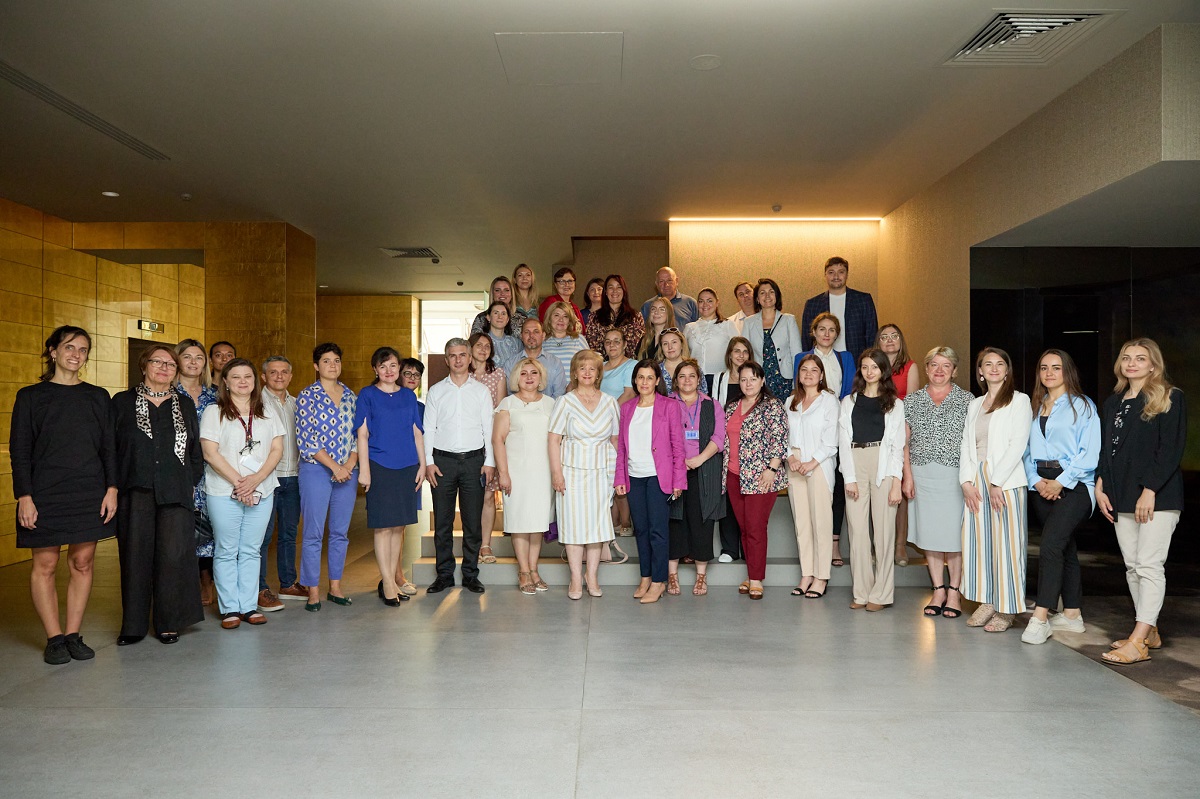Strengthening services for survivors of gender-based violence in humanitarian response and development interventions
Date:
Gender-based violence is a serious violation of human rights, affecting millions of women and girls worldwide. It undermines the health, dignity, security and autonomy of victims and requires an integrated and coordinated approach to be effectively combated.
On 14 July, an event was held that addressed the topic of strengthening the provision of services for survivors of gender-based violence in the Republic of Moldova, both in a humanitarian context and in the context of development interventions. The event, organized by UN Women Moldova within the project "Advancing a Gender-Sensitive Humanitarian Response at the National and Regional Level" and funded by the U.S. Government, brought together representatives of government, civil society, service providers, the international community and experts in the field of ending gender-based violence.

These public discussions focused specifically on strengthening the connection between humanitarian assistance and development interventions in the context of protection and assistance to survivors of gender-based violence, recognizing the importance of collaboration between these two areas to provide adequate and sustainable support to them.
The event provided a valuable opportunity for interaction and discussion with actors involved in the field at national and local levels, including for the exchange of experiences and knowledge between specialized service providers. The participants highlighted the importance of collaboration and coordination of joint efforts in order to ensure an efficient and integrated response in the process of assistance and complete rehabilitation of survivors of gender-based violence.

Felicia Bechtoldt, State Secretary, Ministry of Labor and Social Protection quoted: "Awareness of the adverse consequences of any act of violence is an important step in preventing and combating this phenomenon. For this reason, it is important to strengthen the interinstitutional mechanism, to develop the system of integrated services in terms of ensuring victims' rights, to strengthen partnerships, to talk as much as possible about violence, to take as many measures as possible to prevent and combat it and to promote non-violence as frequently as possible."
Kent (Sam) Healy, Refugee Coordinator, Bureau of Population, Refugees and Migration, U.S. Embassy in Moldova, mentioned in his opening remarks: "Gender-based violence is one of the most persistent violations of human rights. It takes place on every continent and in every country, and the fight against violence must be waged in all communities. Systems need to be developed and strengthened at all levels, and this is where your work comes in and becomes vital. Today's event, the gaps it identifies and the solutions it recommends for the protection system represent a concrete activity in this fight and an activity which will greatly help vulnerable people."
Dominika Stojanoska, UN Women Moldova Country Representative, believes that: "The existing services in the country are insufficient, with civil society organizations providing 60% of the services needed by survivors of gender-based violence in the country. The situation is complicated in the context of multiple crises and the increasing number of women and girl refugees. Through these discussions, we want to reflect on impending reforms, practices on the ground and regional coverage, in order to learn from experiences and promote best practices. We will maintain dialogue to ensure the effective coordination of our efforts."
Iulia Macarenco, Project Coordinator, National Coalition "Life without Violence", says: "In the Republic of Moldova, the development and consolidation of existing services is crucial, given that resources for women, children and girls are insufficient. Ensuring ongoing services and appropriate support is essential. We are happy to announce that within this project will be developed three multifunctional centres for survivors of gender-based violence, in the northern, southern and central parts of the country, as well as a Women's Resource Center in Chisinau. These centers will provide women with a safe space where they can receive support, progress both personally and professionally, establish connections with other women and express their initiatives for the future."

On 31 May, 2023, the government approved the National Program on Preventing and Combating Violence against Women and Domestic Violence for 2023-2027. It focuses on four objectives structured under the four pillars of the Istanbul Convention: prevention, protection, punishment and integrated policies. Alternatively, the program includes a set of measures aimed at ensuring the fulfilment of all commitments assumed by the state in implementing international treaties and providing a targeted response in terms of preventing and combating all forms of violence against women and girls and domestic violence, focusing on the needs of women survivors and their children.
Through the U.S. Government-funded "Advancing a Gender-Responsive Humanitarian Response at National and Regional Level" Project, UN Women Moldova continues to work with national and local partners to strengthen services and resources available to survivors of gender-based violence and promote sustainable change in society.